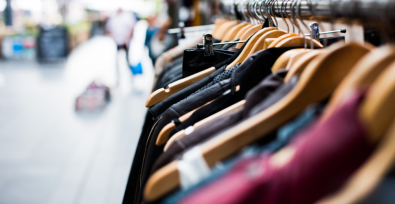Newcomer Temu has been finger-pointed as very likely to have Uyghur forced labor in their supply chain, according to El Pais News. In addition to a host of other issues with their business practices, the current model allows Temu to escape responsibility for eliminating forced labor in the supply chain as required by the Uyghur Forced Labor Prevention Act.
Lacking even the façade of compliance
As part of a 2021 Congressional report, Temu said outright that it “does not expressly prohibit” the sale of goods from the Uyghur region. It is widely held that any goods or materials made or grown in that region should be considered as having Uyghur forced labor in the supply chain.
According to the report:
“American consumers should be aware that there is an extremely high risk that Temu supply chains are contaminated with forced labor,”
Temu also said it “conducts no audits and reports no compliance system to examine” whether its suppliers observe U.S. forced labor law. In Temu’s own words, the only nod towards keeping forced labor out of its supply chain was making its suppliers agree to “boilerplate terms and conditions” prohibiting forced labor. But with no idea of being held accountable for that prohibition, there is little hope of compliance.
Joining the ranks of labor abuse retail giant Shein
Recent months have seen Temu’s aggressive marketing strategy pay off in terms of dividends, with U.S. sales surpassing those of fast-fashion retail rival Shein. Shein is also implicated in multiple reports of having Uyghur forced labor in their supply chain. 2023 projections for Temu’s global sales exceed $13 billion, for comparison, Shein reached sales of $22.7 billion in 2022.
El Pais reports,
“The products arrive directly from Chinese manufacturers, which allows users to skip the middleman and reduce costs.”
Huge discounts on Temu are what appeal to shoppers, reaching up to 97% off of the product’s value. That’s a big difference from the rest of the major e-commerce platforms. Prices for several products on Temu are up to 70% cheaper than the equivalent items on Amazon according to a report by Morgan Stanley. But those discounts likely come at the expense of worker’s rights and a fair wage. The forced labor of Uyghurs and other people from Turkic or Muslim ethnic groups is a well-established feature of the Chinese economy, and countless Western companies, in addition to Temu and Shein, are also profiting from Uyghur forced labor in their supply chains.
The Freedom United community remains deeply concerned that retailers like Temu and Shein continue to use highly unethical labor practices, including their links to Uyghur forced labor. Stand with Freedom United in calling on retailers and manufacturers to cut ties with Uyghur forced labor across their entire supply chain and commit to zero tolerance for forced labor wherever it is found.
Want to know what else you can do to end extreme exploitation? Get our Freedom Footprint Guide and assess your score in the fight for the freedom of people all over the world.







Freedom United is interested in hearing from our community and welcomes relevant, informed comments, advice, and insights that advance the conversation around our campaigns and advocacy. We value inclusivity and respect within our community. To be approved, your comments should be civil.
The only way to remedy this kind of situation, is by establishing a boycott and bring back all the jobs to the USA.
Thanks for this important information. I was unaware of these human rights violations and will not buy from Temu or Shein now that I know. Will sign Petitions sent to me and tell my friends about this.
Hola, no tenía ni idea de que Temu fomentar a la exclavitud, quizás porque lo asocio más a la ropa. Entonces¿Amazon y Aliexpress también lo hacen? ¿Hay alguna plataforma o líne segura al respecto? Y, si compro en un comercio de mi ciudad un producto hecho en China¿como puedo saber que no procede de trabajo exclavo? Muchas gracias
Ya me extrañaba la agresividad de precios de TEMU, lo comunicare a mis amigos y firmare su denuncia cdo Vdes lo soliciten. Gracias por la informacion.
So Amazon can profit off of slave labor but TEMU can’t? I see right through you. Follow the money, right to the government pockets.